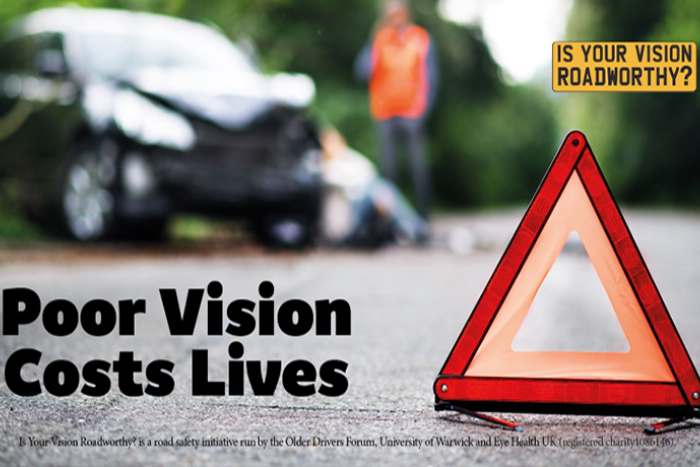
Poor vision costs lives – drivers’ eyesight
Poor vision costs lives - 13 people were killed on Britain’s roads in 2024 and around 3,000 are seriously injured every year due to motorists’ defective eyesight.
Lincolnshire Police and the Lincolnshire Road Safety Partnership (LRSP) are joining forces across the UK to highlight the importance of roadworthy vision.
Voluntary roadside vision screenings will be conducted as part of this national road safety initiative to raise awareness of motorists’ legal obligation to meet minimum eyesight standards when driving.
The national campaign runs from today, October 27 to November 9 - although eyesight is an issue that officers will consider throughout the year and they will conduct roadside eye tests whenever appropriate.
Inspector Jason Baxter of Specialist Operations said: "Ninety per cent of the information a driver uses is visual so we want to use the roadside screenings to raise awareness of the fundamental importance of good eyesight. Drivers who fail to meet the required standards are not only breaking the law but putting themselves and other road users at risk.”
On behalf of the LRSP, Simon Outen-Coe said: “The Lincolnshire Road Safety Partnership has been promoting the ABC of road safety this year: Avoid distractions; Be patient; and Concentrate. Supporting this ethos your eyesight must be of the required standards, whatever your age. If you can’t see properly, then how will you spot the danger and prevent either yourself or others coming to serious harm? Don’t let the consequences of your failure to look after your eyesight be the death of another person.”
The law requires that all motorists are able to read a car number plate from 20 metres (that’s about five car lengths); have a visual acuity of 6/12 measured on the Snellen scale (wearing prescription eyewear, if necessary) and have adequate field of vision. There are additional standards for lorry and bus drivers. Driving with uncorrected defective eyesight is punishable with a fine of up to £1,000, three penalty points and possible disqualification. Poor vision can increase your risk of a collision.
The roadside vision screening will ask drivers to read a number plate from a distance of 20 metres. All tests will be conducted in good daylight conditions, using a registration plate affixed to a vehicle at the correct measured distance (20m), with the driver wearing any eyesight correction (eg: spectacles) worn at the time of driving.
Under legislation known as Cassie’s Law, drivers who fail a roadside number plate test could have their licence revoked on the spot if a police officer deems them to be unsafe to be on the road. Cassie was 16 when she was killed by a driver who had failed an eyesight test just days earlier.
Vision can decline gradually without people realising, so motorists are advised to have sight tests every two years, even if you think your eyesight is fine, to help ensure your vision remains roadworthy.
For practical advice and information about vision and driving.
Full details of the legal eyesight standards for all motorists.
